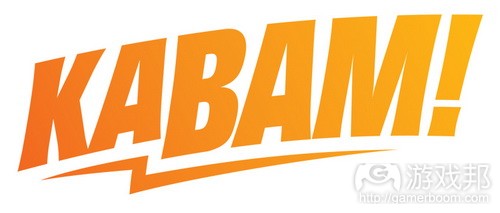汇总社交游戏领域2011年的几大重要传闻
2011年即将步入尾声,Inside Social Games特就社交游戏领域的重要争议事件和谣言进行汇总,所涉及内容从裁员跨越到没落作品。
虽然这些内容未必最受投资者和开发者关注,但同并购、IPO及破产或扩张类消息一样,它们被反复流传。就谣传来说,这些故事通常未被证实或缺乏实质内容,不足以构成新闻报道。但即便如此,有些内容依然持续很久,值得我们在此提及。
Zynga追回员工股票——11月,未经确认
今年,《华尔街日报》报道称Zynga CEO Mark Pincus要求个别表现糟糕的员工退还公司股权。这发生在公司开始进行众人翘首以盼的IPO之前一个月,文章质疑Zynga持久留住员工的能力。虽然Zynga从未否认此传闻,但据CNN收到的该公司备忘录所称,《华尔街日报》的文章纯属谣言,还特别提到“精英管理”是公司的核心价值观。后来有传言称此股票回收举措只是针对个别表现非常糟糕的员工。最后,Zynga股票还是坚持定价10美元(游戏邦注:公司计划的IPO总额是10亿美元,其市场估值是70亿美元)。公司股票发售后价格有所跌落,目前售价为9.75美元。
RockYou的戏剧化转变——11月
RockYou今年初表现突出,顺利收购Playdemic,还推出新广告平台和合伙发行项目。但到仲夏,此《Zoo World》开发商显然陷入困境,虽然公司继续通过收购进行扩张。公司首款联合发行作品《Cloudforest Expedition》有所延误,最终Zynga的《Adventure World》抢先入驻市场。尽管公司强势推出《Zoo World 2》,由RockYou推出及运作的各款作品的流量依然都呈下滑趋势。在公司游戏业务副总裁Jonathan Knight夏末离职后,有关公司计划裁员的谣言开始传开。RockYou CEO Lisa Marino 1个多月后证实此消息,还补充表示,Playdemic将重新卖给原公司,公司将解除同《Cloudforest》开发商Loot Drop的合约。RockYou最近宣布,公司最后一季度处于盈利状态;《Zoo World 2》流量再度复苏;虽然Loot Drop已和其他社交游戏发行商签订新协议,但《Cloudforest Expedition》依然还未发行。
《美女餐厅》在Facebook寿终正寝——6月
驻扎于旧金山的PlayFirst今年初开始自己的宏伟计划,决定将公司IP投放于Facebook平台,此外公司还在2010年末融资920万美元。虽然公司强势推出《美女餐厅》,而且游戏初期表现不俗,但公司还是在作品发行8个月后因表现糟糕停止游戏(游戏邦注:这是继《Wedding Dash Bash》和《Chocolatier: Sweet Society》之后的第三款失败之作)。公司游戏业务副总裁及总经理Eric Hartness在这款游戏消亡前后离开公司,不久之后公司辞退部分员工。就当前来看,公司似乎打算完全放弃社交游戏,公司发言人此前曾表示,PlayFirst未来将会瞄准“手机休闲游戏领域”。
Kabam重组——12月,部分确认
2011年春末,《亚瑟王国》开发商Kabam在第四轮融资中筹得8500万美元,用于支持既有Facebook游戏及发行新作。在此融资消息公布时,Kabam各工作室的员工400人左右,其中包括新成立的旧金山工作室。但约在2011年8月,若干匿名情报人士声称Kabam准备或已开始裁员。此消息似乎有些矛盾,因为Kabam当时依然持续招聘新员工,继续推出新作品。但我们发现,Kabam有时会在Facebook推出既没有贴牌也没有发布的作品——例如,我们6月首次在AppData排行榜中看到的《Samurai Dynasty》。随后若这些作品无法持续发展,公司就会将它们移除。这些移除的作品也许就是导致裁员的原因,因为公司要进行重组。Kabam本月发表声明,称只有不到80位员工受到影响。这否定了情报人员所透露的消息,后者称人数会在80-200间。公司发言人告诉我们公司目前有员工475人;此开发商最近在Google+和公司自己的网站推出授权游戏《Godfather》。
Digital Chocolate的艰难处境——10月,未证实
Zynga曾经的主要竞争对手Digital Chocolate 2011年初开始走下坡路,尽管公司陆续推出《Army Attack》和《Millionaire Boss》,将若干老牌游戏移植至手机和Google+平台。据公司内部知情人士透露,Digital Chocolate打算进行裁员,鉴于《Millionaire Boss》出现急剧下滑,及《Army Attack》原计划的更新内容受到推迟,这丝毫不令人感到意外。我们今年10月同Digital Chocolate交谈时,公司发言人称裁员传闻纯属虚构,但据另一知情人士透露,Digital Chocolate在圣马特奥的社交工作室因Facebook日益上涨的用户获取成本已经关停。此外,此消息还称公司同某初创社交游戏开发公司的失败发行合约让Digital Chocolate无法从中抵消用户获取成本。Digital Chocolate最近在自己的网站和Facebook推出新款社交游戏《Galaxy Life》。
Vostu与Zynga解决侵权争端——6月-12月
巴西社交游戏开发商Vostu今天6月颇受公众关注,原因是Zynga起诉公司侵犯版权,称Vostu大量复制他们的作品。Vostu向Zynga提出反诉,称后者在提出诉讼前曾试图收购他们,但最终未能如愿。两家公司本月达成庭外和解,Vostu同意支付Zynga一定数额的补偿金,对《MegaCity》、《Café Mania》、《Pet Mania》和《MiniFazenda》做出一定调整。Vostu目前正在扩展业务,打算推出更多休闲社交游戏,这要归结于公司之前收购MP Game Studio。Vostu还积极在其主要社交游戏中添加新功能,如公司在《MegaCity》和《MiniFazenda》中添加的定制游戏广播台。
Sony Online Entertainment退出Facebook——5月
Sony Online Entertainment年初基于《无尽的任务 II》推出Facebook捆绑内容,同时继续运作公司独立工作室开发的若干作品。这些作品在2011年头几个月都未呈现任何发展势头,约在5月份,SOE悄悄退出Facebook。这些作品既未完全被弃置,也没有退还给开发商,就像Night Owl Games的《Dungeon Overlord》。该发行商的发言人并未确认说SOE将完全脱离社交游戏行业,但有表示公司将重返其MMO核心业务。
《Deep Realms》的消亡——6月/7月,未证实
迪斯尼Playdom年初开始继续公司的新游戏发行计划,先是推出《Deep Realms》,然后是《时光花园》。后者使前者黯然失色,包括迪斯尼Playdom今年发行的其他作品,甚至是迪斯尼品牌的《GnomeTown》和《ESPN Sports Bar & Grill》,所以听到《Deep Realms》团队今年初因公司转投其他业务而裁减人员的谣言自然就不足为奇(游戏邦注:就《Deep Realms》当前的流量来看,我们尚无法判断游戏是否有望持续到2012年的第一季度)。
《Wrestler: Unstoppable》3D游戏令粉丝不快——5月
2D摔跤模拟游戏《Wrestler: Unstoppable》2010年被Rocket Ninja收购时拥有大批忠实粉丝。这些粉丝就公司基于此款游戏推出的更新内容持有不同看法,主要集中在游戏采用Rocket Ninja引擎,从2D模式切换到3D。令玩家最不满是,新引擎引发众多漏洞和运作问题,玩家广泛呼吁让游戏回到最初模式。《Wrestler: Unstoppable》9月底地出现急剧下滑;Rocket Ninja宣布公司在11月的第二轮融资中筹得750万美元,主要用于将公司的3D引擎推广至社交和手机游戏领域。(本文为游戏邦/gamerboom.com编译,拒绝任何不保留版权的转载,如需转载请联系:游戏邦)
2011′s Biggest Rumors and Controversies in Social Games
As we approach the end of 2011, Inside Social Games looks back at the biggest stories in the social games industry based on controversies and rumored controversies around everything from layoffs to sunsetted games.
While not necessarily the most popular articles among investors and developers, these stories and subjects tend to be repeated almost as often as the success stories of mergers and acquisitions, IPOs, and other exits or expansions. In the case of rumors, these stories often couldn’t be independently verified or lacked enough substance to warrant a news report. Even so, some of them were persistent enough to merit mention here.
Zynga’s Stock Clawback Scandal – November, Unconfirmed
This year Zynga took some very poorly timed heat from a Wall Street Journal expose that claimed company CEO Mark Pincus pressured employees to return stock rights due to poor individual performance. Surfacing a month before the company’s hotly anticipated IPO, the article called Zynga’s corporate practices and long term ability to retain employees into doubt. While Zynga never denied the story, CNN did obtain a company memo that said the Wall Street Journal’s article was based on hearsay, but also specifically mentioning “meritocracy” as a core company value. We’ve since heard rumors that the alleged stock clawbacks were only directed at a very small number of employees that truly were under-performing. In the end, Zynga’s shares went on to be priced at $10, netting the company a billion dollars in its IPO and a market valuation of $7 billion. The company’s shares slipped after they began trading, and are now worth $9.75.
RockYou’s Dramatic Pivot – November
The year started off well for RockYou with the Playdemic acquisition and a new ad platform and partner publishing program. By mid-summer, however, it was clear that the Zoo World developer was in trouble even as it continued to expand via acquisition. The first of its partner-published games, Cloudforest Expedition, was delayed and eventually beaten to market by Zynga’s Adventure World. Overall traffic declined across most of RockYou’s owned-and-operated games despite a strong launch of Zoo World 2. By the time SVP of Games Jonathan Knight left the developer-publisher in late summer, rumors of planned layoffs began to circulate. RockYou CEO Lisa Marino confirmed just over a month later, adding that Playdemic would be sold back to its original owners and that Cloudforest developer Loot Drop was released from its contract. RockYou is currently claiming a profit for the final quarter; Zoo World 2 is showing a resurgence in traffic; Cloudforest Expedition remains unreleased, though Loot Drop has signed new agreements with other social game publishers.
Diner Dash Finished on Facebook – July
San Francisco-based PlayFirst began the year wtih big plans for bringing its IP to Facebook and a $9.2 million round of funding it secured at the end of 2010. Despite a solid launch and strong initial growth of its premier franchise, Diner Dash, the developer sunsetted the game after just eight months due to poor performance — the third failure in a row following Wedding Dash Bash and Chocolatier: Sweet Society. SVP of Games and General Manager Eric Hartness left the company around the time of the game’s demise and an unspecified number of employees were laid off not long afterward. At it stands now, the developer appears to have made a full scale retreat from social games, with a company representative telling Joystiq that PlayFirst will now focus on on the “mobile casual gaming space.”
Kabam’s Restructuring – December, Partially Confirmed
At the end of spring 2011, Kingdoms of Camelot developer Kabam closed an $85 million fourth round of funding to put toward ramping up its existing Facebook games and launching new ones. At the time that the funding was announced, Kabam said it had 400 employees across multiple studios — including a newly-opened San Francisco studio. Around August 2011, however, multiple anonymous tipsters told us that Kabam was preparing or had already begun rounds of layoffs. The stories seemed inconsistent as Kabam maintained a steady flow of hiring during this time period, and continued to launch new games. We observe, however, that Kabam sometimes launches games on Facebook that are neither branded nor announced — for example, Samurai Dynasty, which we first saw on our AppData charts in June — and then sunsets them if they fail to gain organic traction. These scrapped games could be cause for layoffs as could general restructuring. Kabam came out this month and announced the latter, claiming that fewer than 80 employees were affected. This contradicts the information provided by the tipsters, which place the number between 80 and 200. A spokeswoman tells us that Kabam currently has around 475 employees; the developer recently launched a licensed Godfather game on Google+ and on its own site.
Sticky Situation at Digital Chocolate – October, Unconfirmed
Once a major competitor to Zynga, Digital Chocolate was already losing ground at the beginning of 2011 despite launching new games Army Attack and Millionaire Boss and expanding onto mobile and Google+ with some of its older titles. As Millionaire Boss began to decline rapidly and planned updates to Army Attack were delayed, it came as no surprise to hear from a tipster who worked at the company that the developer was considering layoffs. A Digital Chocolate spokesperson denied any major layoffs when we contacted the developer in October, but a second source with knowledge of the company told us that Digital Chocolate’s social studio branch in San Mateo had been completely shut down due to rising user acquisition costs on Facebook. Additionally, this source says a failed publishing agreement with a first-time social game developer hurt Digital Chocolate’s ability to offset user acquisition costs. Digital Chocolate recently launched a new social game, Galaxy Life, on both its own site and on Facebook.
Vostu’s Most Litigated Form of Flattery – June to December
Brazilian social game developer Vostu made some ink in June this year when Zynga sued the company for copyright infringement, claiming Vostu had copied their games wholesale, right down to unintended glitches and mistakes. Vostu hit Zynga with a countersuit alleging Zynga had unsuccessfully tried to negotiate a partnership or acquisition with it before Zynga’s initial lawsuit. The companies settled out of court this month, with Vostu agreeing to pay Zynga an unspecified amount in compensation and make changes to MegaCity, Café Mania, Pet Mania and MiniFazenda. Vostu is currently branching out and is on track to release more casual social games, thanks to its earlier acquisition of MP Game Studio. Vostu is also working on adding new features to its core social games, like the custom in-game radio stations it just added to MegaCity and MiniFazenda.
Sony Online Entertainment Exits Facebook – May
Sony Online Entertainment started off the year by publishing a tie-in Facebook game for its EverQuest II franchise and continuing to operate several games developed by independent studios. None of these games found much traction in the first months of 2011, and somewhere around May, SOE quietly walked away from Facebook. Its games were either abandoned completely or handed back to their developers, as was the case with Night Owl Games’ Dungeon Overlord. A spokeswoman for the publisher wouldn’t confirm that SOE is completely out of the social game industry, but did say that the company was trying to get back to its MMO roots.
Deep Realms Deep Sixed – June/July, Unconfirmed
Disney Playdom was just beginning to exit its moratorium on new game launches at the beginning of the year, first with Deep Realms and then with Gardens of Time. The latter completely eclipsed the former — and just about every other game Disney Playdom released this year, even the Disney-branded GnomeTown and ESPN Sports Bar & Grill — and so we weren’t surprised to hear rumors that the Deep Realms team had been trimmed down early on in the year as the developer shifted its attention to other ventures. Given Deep Realms’ current traffic, it’s unclear at this point if the game will survive Q1 2012.
Rocket Ninja’s Wrestler: Unstoppable Makeover – May
2D wrestling sim Wrestler: Unstoppable had a very outspoken and loyal fan following by the time the game was acquired by Rocket Ninja in 2010. It appears to be these same fans stirring up controversy around the developer’s updates to the title — mainly, the visual makeover from 2D to 3D with Rocket Ninja’s proprietary engine. Players cited numerous bugs and performance issues caused by the new engine as their main complaint and a petition was circulated, calling for a return to the game’s original visuals. Wrestler: Unstoppable went into a sharp decline around the end of September; Rocket Ninja announced a $7.5 million second round of funding in November to put toward scaling its 3D engine in social and mobile games.(Source:insidesocialgames)
上一篇:游戏设计需把握好故事的呈现力度











































 闽公网安备35020302001549号
闽公网安备35020302001549号